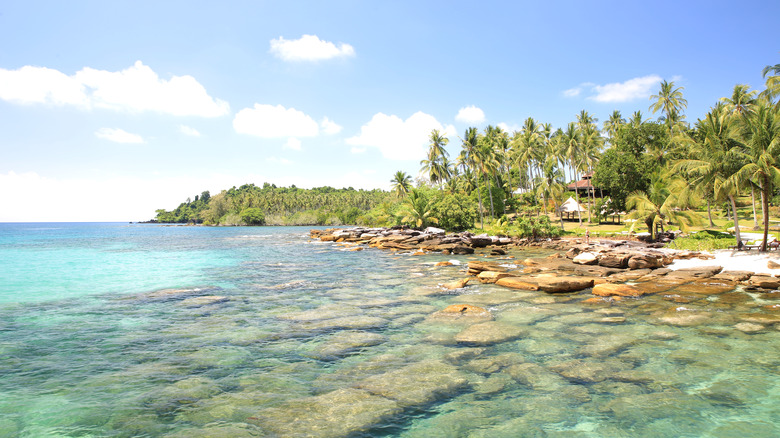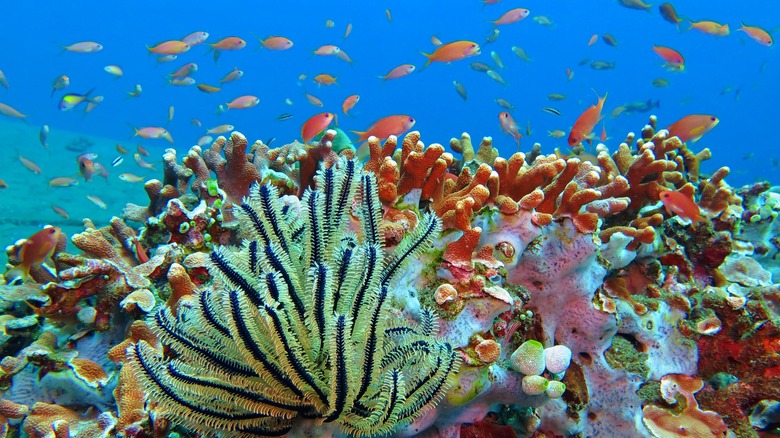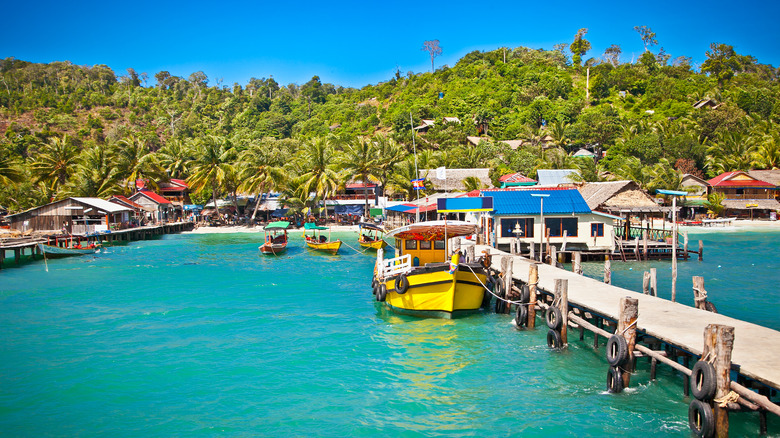Travel Guides Outdoor Adventures Water Adventures
Matt Berry
Cambodia is a country of mystery, ancient history, and natural wonder. Due to its troubled history, the emerging Southeast Asian country still falls under the radar of many international travelers, but this is quickly changing. Those familiar with Cambodia probably still associate the country with the ancient ruins of Angkor Wat — perhaps as a one-off destination touring through Southeast Asia — or the historical capital of Phnom Penh.
However, Cambodia is much more than its history — ancient or recent. The extraordinary natural beauty of Cambodia is astounding, especially on the Gulf of Thailand coast, the tropical islands off the coast, and under its crystal-clear waters.
While Cambodia hasn’t yet become the international diving hotspot of Thailand, the diving scene is growing quickly, making it easier for international divers to visit.
If you’re planning a diving trip to Cambodia or considering adding diving to your Cambodia itinerary, you can dive year-round, per Scuba Travel. However, two specific months are ideal for the underwater Kingdom of Wonder.
Cambodia’s dry season offers ideal visibility

Chanut Adrien/Shutterstock
According to Dive Cambodia, the country experiences a rainy monsoon season from June to October and a dry season from November to May. However, within the dry season, it’s relatively cold from November to February and hot from March to May. This variance in temperature ranges from 21 degrees Celsius (70 degrees Fahrenheit) to 40 degrees Celsius (104 degrees Fahrenheit), meaning it’s not exactly “cold” using any metric during the dry season. Regardless, the water temperature typically hovers around 28 degrees Celsius (82 degrees Fahrenheit) year-round, per Scuba Travel.
While you may experience a stretch of days of dry days in the wet season and wet days during the dry season, the seasons are pretty predictable. If you’re planning a diving trip to Cambodia, you’ll want to plan for the dry season, ideally in either the hotter month of May or the cooler month of November.
Obviously, you don’t want to take a boat out in a monsoon, but there are other considerations for diving during the shoulder months of the dry season.
Shallow island waters are perfect for beginners

blue-sea.cz/Shutterstock
Per Travel Fish, much of Cambodia’s diving sites are relatively shallow, making them ideal for beginner divers. Also, since the dive sites are so shallow, the dry season helps ensure better visibility, especially for free divers and snorkelers.
While not to the scale of Thailand, there’s something to choosing shoulder months of the dry season over the peak of the dry season due to crowds. While the diving scene is still growing in Cambodia, the diving sites are typically localized to the smaller tropical islands off of Cambodia’s southern coast.
According to Travel Fish, diving sites on the islands of Koh Rong Samloem, Koh Tang, and Koh Prins are becoming increasingly popular, with diving outlets now operating from the islands themselves versus organizing excursions from the mainland’s port city of Sihanoukville. This creates the duality of making an activity more accessible. Obviously, it’s more convenient — but it’s more convenient (accessible) for everyone.
That said, Cambodia is still an emerging diving destination, so crowds really shouldn’t be too much of an issue. However, the less-crowded months of November and May could still provide an easier above-water experience, while underwater, the Kingdom of Wonder beckons.

